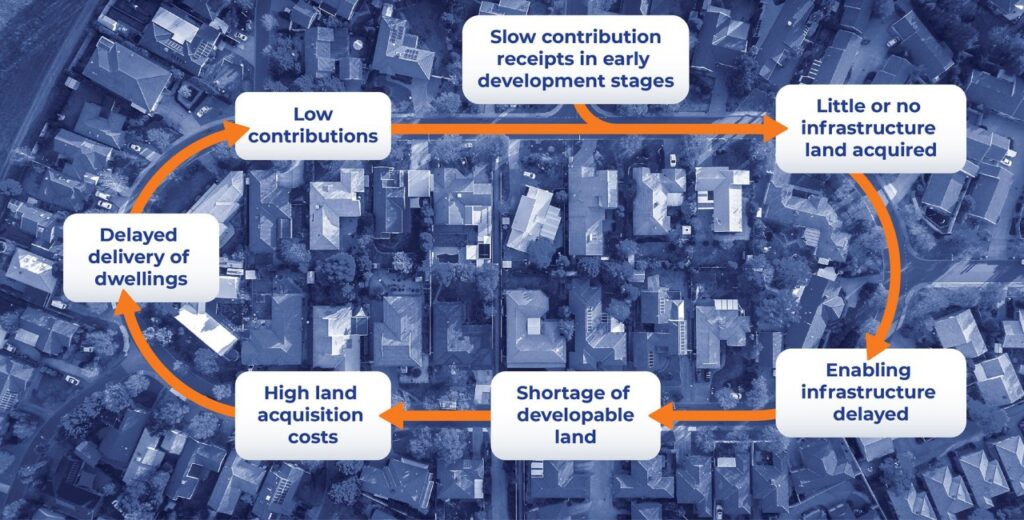Long regarded as one of the safest and most profitable investments available is land development instractucture. Land is limited unlike other asset classes, such stocks or bonds; as Mark Twain famously said, “buy land, they’re not making it anymore.” Approached strategically, the demand for land is further driven by the rising global population and rapid urbanization, so making it a possibly valuable asset.
Not all land investments, meanwhile, pay off handsomely. Strategic land investment—that which requires careful planning, research, and patience—is the secret to success. The ideas of strategic land investment will be discussed in this blog together with their advantages and ways to negotiate the difficulties presented by this asset type. This strategy can provide significant returns for investors looking for long-term gains, especially when followed with dedication and foresight.
Recognizing Strategic land development instractucture
Strategic land investment is the purchase of land in places likely to show appreciable increase with time. The secret is spotting sites most likely to see future urban growth, economic or demographic-driven demand increase, or land development instractucture.
Strategic land investment calls for a deeper knowledge of market trends, zoning laws, land development instractucture, and long-term plans of local municipalities unlike speculative land investments, where buyers may just purchase land in the hope that it will appreciate without any supporting rationale. It’s a methodical strategy with an eye toward clearly growth-oriented sectors.
Usually, the plan is to hold the land for a long time—perhaps years or even decades—until it appreciates enough to either sell for profit or develop it for even higher returns. Maximizing returns depends on this patient strategy, particularly in markets when fast appreciation is expected over time rather than instantaneous.
Why Investing in land development instractucture
For various reasons, land investing appeals especially to you.
- Limited Supply: One limited resource is land. The limited acreage that remains gets more rare as cities grow and populations rise. According to the basic ideas of supply and demand, especially in places with great future development, land values will usually rise over time.
- Land is a physical asset: you can see and touch unlike stocks or cryptocurrencies. For many investors, it offers a sense of security and is not as sensitive to the market volatility as financial instruments.
- Less Maintenance: Land requires much less upkeep than other real estate assets including rental homes. For those seeking a hands-off approach, this investment appeals because there are no renters, repairs, or property management issues.
- Capital Appreciation: Especially if the land is in a location ready for land development instractucture, land values often grow with time. Unlike short-term gains, strategic land investors concentrate on long-term appreciation, therefore enabling their holdings to increase in value over time.
Raw land can be turned into either residential, business, or industrial property. Either strategic investors can cooperate with developers to generate profitable projects or sell the land once its value rises.
The Fundamentals of Strategic land development instractucture
Investors that want to be successful in strategic land investment have to concentrate on several important factors:
Location
Location is the most important consideration in every real estate investment, hence land is not an exception. Strategic land investment, on the other hand, goes one step further by concentrating on regions expected to witness future land development instractucture even though they may not be now developed.
Cities are always increasing, hence land on the periphery of expanding urban centers usually offers a great investment possibility. The demand for infrastructure, business spaces, and homes as cities grow will rise, therefore driving up land values in these places.
Government infrastructure projects—such as new airports, public transit, or new highways—can have a major effect on property values. Investors should search for places where such developments are scheduled since these are probably going to be in demand going forward.
Strategic property investors have to pay great attention to neighborhood zoning rules and urban development projects. Rezoning agricultural land for either residential or commercial use can significantly raise its value; however, knowledge of the legal structure and forthcoming developments is essential.
Due Diligence
Before they buy, successful land investors do extensive due diligence. This entails learning the geography, water availability, and flood hazards of the site as well as everything from soil quality to environmental hazards.
Investors also have to consider whether the land has title problems, encumbrances, or legal conflicts free from all of which Examining future local planning is also quite important. Future usage of a land and, hence, its value are influenced by municipal development plans, zoning rules, and environmental constraints.
Long-Term Vision
Strategic land buying calls for endurance. Investors have to be ready to hang the land for long since the surrounding area might not develop for years. Unlike short-term real estate investments, which could yield fast returns, land investments usually call for long-term vision and discipline.

One must have a well defined departure point. Investors should decide whether they wish to develop the land, sell it once it values, or team with developers. This foresight will enable one to make sure the expenditure fits long-term financial objectives.
Comprehending Market Trends
Effective land investors keep current on market trends including demographic changes, economic situations, and new technologies particularly those pertaining to demographic changes. For example, the growing trend of remote work has driven demand for land in suburban and rural locations since many professionals want for greater space away from busy cities. Those who keep ahead of such trends might profit from them by buying real estate in areas likely to see future demand rising.
In a same vein, green building trends and environmental sustainability are growingly crucial. Investors that think about how future growth could include sustainable agricultural, environmentally friendly designs, or renewable energy can set themselves to satisfy the rising need for sustainable land usage.
Strategic Land Investment’s Advantages
Although land is usually regarded as a slow-moving asset, the advantages of a strategic approach can be really noteworthy:
High Prospective Returns
Strategic land purchase, done right, can yield significant rewards. Especially if the area develops for industrial, residential, or commercial use, the value of land in expanding areas might rise rapidly. Early in the development cycle land purchasers can gain from significant appreciation.
Diversification
One outstanding asset class for portfolio diversification is land. Being different from stocks, bonds, and other real estate assets helps it be a good hedge against market volatility. Land can offer a consistent, physical asset free from the same swings as financial markets during uncertain economic times.
Hedge against inflation
Land values rise with inflation. Land is a limited resource whose value usually rises with inflation; so, it is a great advantage for investors trying to protect their riches during inflationary times. Over time, the value of land helps to guarantee that it either matches or exceeds inflation.
Tax Benefits
Among the various tax benefits of land investment are possible deductions for property taxes and interest on land loans. Certain governments may let agricultural land qualify for lowered property taxes. Long-term land purchases also earn from reduced capital gains taxes upon future sale of the land.
Strategic Land Investment Challenges
Strategic land investment has certain difficulties even if it offers several advantages:
Liquidity: Land is not as liquid as bonds or equities among other investments. Finding a buyer could take time, especially in areas still under development. Before they can profitably sell the land, investors must be ready to hang onto it for protracted lengths of time.
Strategic: land investment calls for precise timing in marketing. Should an investor buy land too early, they might have to wait years for the area to grow, therefore tying down their money. On the other hand, if they wait too long, they could pass over the most important chances for appreciation.
Changes in zoning laws or environmental rules could affect the worth of a site. To guarantee their investment stays sustainable, investors have to be updated about local rules and development projects.
Conclusion: Long-Term Gains Strategic Land Investment
For those ready to be patient, do extensive study, and keep current with market developments, strategic land investing presents a road to long-term gains. Investors can make raw land a very valuable asset by concentrating on locations with great growth potential, knowing zoning and infrastructure developments, and adopting a long-term strategy.
For individuals trying to accumulate wealth over time, land investing appeals even if it calls for discipline and forethought with its potential for great returns, diversification benefits, and inflation resistance. Land investment can be the pillar of a successful, long-term financial plan rather than only a piece of real estate with a well-executed strategy.
Read More: exclusive real estate opportunities


